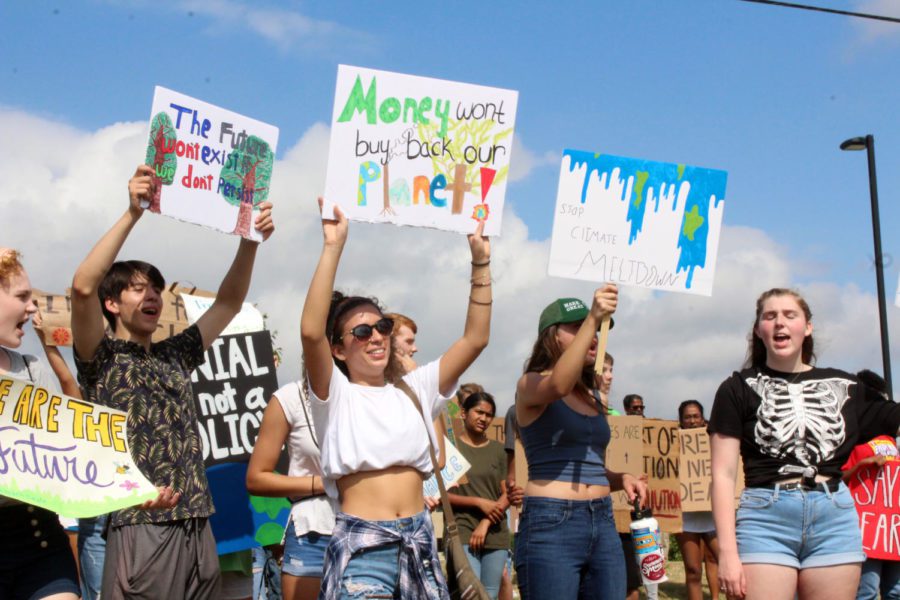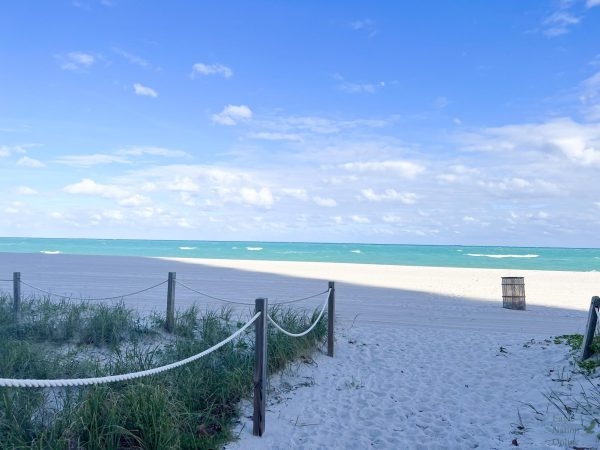Flaming Hot Planet
Protesters stand along to show their support for the climate. Hundreds of youth gathered on the steps of the Collin College Courthouse to protest the pollution of the environment. “Hey! Hey! Ho! Ho! Fossil fuels have got to go!” shouted protesters.
September 26, 2019
Columnist explores the globe’s massive heat wave
Scrolling through my social media one day, I came upon an interesting screenshot of an article from Twitter titled, “12 years to save the planet? Nope, 17 months now.” Nothing usually surprises me anymore when it comes to world news, but this one caught me off guard.
17 months? I decided to look into this conspiracy.
My research took me to a BBC News article that said, “12 years to save the planet? Make that 18 months.” Turns out Twitter wasn’t kidding.
The article discussed how our carbon emissions have to be cut by 45 percent by 2030 if we want to stop the rise in global temperatures, but now the deadline is the end of next year. The current rise in global temperatures is 1.5 degrees Celsius, which is 2.7 degrees Fahrenheit, and by 2100, that could turn to 3 degrees Celsius, or 5.4 degrees Fahrenheit. Several countries have devised plans on cutting their carbon emissions, yet they aren’t very effective in keeping temperatures below the safe zone. Scientists say our planet is too damaged to reverse the heat wave.
A similar article from The Washington Post covers the rise in temperatures across the globe, saying that already 8 to 11 percent of the world has crossed the 2 degree Celsius mark (3.6 degrees Fahrenheit), which could lead to increased damage along the way. Many ecosystems in these areas have already experienced the effects of rising temperatures, including wildfires in Alaska and melting glaciers in the Alps. Marine life is currently suffering with warmer oceans, leading to a rapid decline in certain seafoods. The article says there’s even a struggle to keep up with the changing environment, since the norms of a stable, mild climate have turned to dust.
I’m not usually a protester, but I feel our planet deserves better than what we have been giving it. We usually don’t take time to look at the bigger picture. We don’t take the time to see that this planet is the only one we have. Nobody knows what the future holds, but I would like to still have one on Earth. We have the proper technology to keep climate change behind the boundary line, the human will to do so is nonexistent.
There are people giving a voice to Mother Nature. Just yesterday, Sept. 23, there was a climate change rally in Washington, D.C., shutting down intersections and demanding change in front of the Capitol. On a smaller scale, our school has its own Environment Club that works to bring local awareness to a global topic.
Now you’re probably wondering, global warming and climate change are collective problems that the world has to deal with, so how could one person make a difference? And you’re right, one person’s efforts can’t immediately make a difference. A majority of the human population has to take action for a significant effect to take place, but you can still help out. If you and some friends are going somewhere, try to carpool. If you start to stack up plastic water bottles in your room, maybe switch to a reusable alternative. And if you have a strong voice for helping out the environment, join the club! Literally! The Environment Club, led by teacher Ramona Gordon, is always looking for new members. Every eco-friendly action brings us one step closer to becoming a cleaner planet, one step closer to a brighter future, one step closer to saving our home.
Updates were made on Sept. 26 to make certain conversions accurate.

























